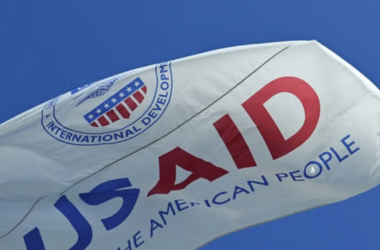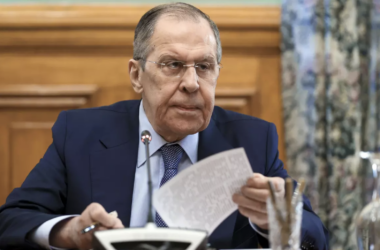The year 2024 marked a pivotal moment in global politics, driven by profound ideological shifts and a redefinition of societal values. Alexander Dugin, a prominent Russian philosopher and geopolitical thinker, in his interview to arktosjournal.com, provides insight into this transformation, emphasizing the convergence of ideological, spiritual, and geopolitical factors shaping the modern world. His analysis focuses on Russia’s confrontation with liberalism, the reelection of Donald Trump, and the broader implications of these developments for the West and beyond.
The Turning Point in 2024
According to Dugin, the year 2024 represented a profound turning point for Russian society and its struggle against the West. Initially, the Special Military Operation (SMO) was perceived as a localized or technical issue. Many believed the conflict with the West was situational and would eventually return to normalcy. However, as Dugin explains, this assumption dissolved as the realization dawned that Russia was engaged in an existential conflict with Western civilization.
“Our society has long struggled with peacetime challenges,” Dugin notes, highlighting issues like corruption and societal decay. Yet, by 2024, a shift occurred at every level of society. “This realization signifies that we are not part of [Western civilization]. We are something unique, a distinct civilization, in many ways the antithesis of the West.”
This awakening led to the collapse of the liberal worldview within Russia. Liberalism, once tolerated or even celebrated, became synonymous with treason and sabotage. Dugin predicts that a thorough reckoning with liberalism will be a long-term project, aimed at understanding how it infiltrated the political system and led to catastrophic consequences. This reckoning marks a decisive step toward what Dugin calls the “ideology of victory” and the revival of the Russian Idea.
The Revival of Ideology
For decades, Russian society was characterized by a lack of ideological coherence. This de-ideologization, according to Dugin, has now given way to a revival of ideology that is both organic and deeply rooted in the nation’s spiritual and historical identity. The Russian Idea, he asserts, has always driven the country’s history and is now reemerging as a unifying force.
“Our people increasingly realize that there are values higher than life itself,” Dugin states. The sanctification of ideas through sacrifice and blood imbues them with a magnetic power, captivating society and fostering a renewed sense of purpose. Patriotism, sovereignty, loyalty to the President as the Supreme Leader, and a return to Byzantine Orthodox roots are among the pillars of this ideological revival.
This ideological shift has profound implications for Russia’s role in the world and its internal cohesion. The spiritual awakening is mirrored in the willingness of citizens to defend the Motherland, reflecting a broader cultural and moral transformation.
Trump’s Reelection and the Ideological Shift in America
Dugin identifies the reelection of Donald Trump as a critical event in the global ideological landscape. He cautions against two extreme interpretations of Trump’s victory. The first, that nothing will change and the globalist agenda will persist, is overly simplistic. The second, that Trump’s ideology aligns closely with Russia’s, is equally flawed.
“Trumpism represents a new ideology that decisively rejects left-wing liberalism and globalism,” Dugin explains. However, the traditional values championed by Trump and his supporters differ fundamentally from those of Russia. Trump’s vision is rooted in American traditionalism, which, while rejecting woke culture and hyper-individualism, remains distinct from Russia’s spiritual and cultural framework.
Despite these differences, Trump’s reelection signals a decisive ideological revolution in America. The rejection of hyper-individualism, gender politics, woke culture, and internationalist liberal globalism heralds the emergence of a post-liberal ideology in the West. Figures like Elon Musk, Tucker Carlson, and J.D. Vance exemplify this shift, representing a coalition of conservatives and new technocrats siding with them.
The Impact on Global Geopolitics
Trump’s ideological shift is expected to reshape global power dynamics. While it does not signify a complete alignment with Russian values, it represents a departure from the hegemonic globalist agenda. Dugin foresees a 90-degree shift in U.S. policy under Trump, compared to the Biden administration’s globalist priorities.
This transformation will have ripple effects across Europe, the Middle East, and Asia. National-Conservative movements in Europe, such as those led by Viktor Orbán and Robert Fico, may find new support under the Trump administration. Dugin predicts that these movements will challenge the dominance of left-wing liberal elites in Europe and contribute to a broader ideological realignment.
Dugin’s Concept of “Bro-Revolution”
Central to Dugin’s vision of overcoming liberalism is his concept of “bro-revolution.” This idea encapsulates a revolutionary transformation grounded in fraternal solidarity and shared values. Unlike traditional revolutions driven by class struggle or ideological dogma, bro-revolution emphasizes spiritual unity and cultural renewal.
Dugin envisions bro-revolution as a counterforce to liberalism, which he views as inherently atomizing and dehumanizing. By fostering a sense of brotherhood and collective identity, bro-revolution seeks to create a society rooted in higher values and shared purpose. This revolutionary ethos aligns with the broader ideological revival taking place in Russia and resonates with global movements rejecting liberalism and globalism.
Challenges and Opportunities for Russia
While Dugin acknowledges the ideological shift in America as a positive development, he emphasizes the need for Russia to act decisively. Trump’s approach, characterized by rapid elite rotation and uncompromising action, contrasts with Putin’s more gradual and cautious strategy. Dugin argues that Russia must accelerate its own efforts to eliminate corruption and strengthen its ideological foundations.
“The Americans are setting an example by aiming to eliminate the globalist, corrupt bureaucracy in the U.S.,” Dugin observes. Russia, he suggests, should adopt a similarly bold approach to consolidate its ideological and political gains.
Towards a Post-Liberal World: Dugin, Trump and bro-revolution
The ideological transformations of 2024 mark the beginning of a new era in global politics. The collapse of liberalism within Russia, Trump’s reelection, and the emergence of post-liberal ideologies in the West reflect a broader shift away from the globalist consensus that has dominated the past three decades.
Dugin’s analysis underscores the importance of spiritual and ideological renewal as the foundation for societal and geopolitical change. The revival of the Russian Idea, the rise of bro-revolution, and the rejection of liberal globalism point toward a post-liberal world defined by diverse and competing civilizations. As this new ideological landscape takes shape, the challenge for Russia and other nations lies in navigating these changes while remaining true to their unique identities and values.




